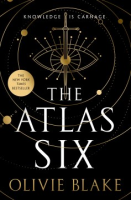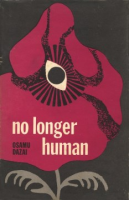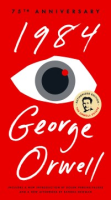Teen Book Reviews: Summer 2023

The Atlas Six by Olivie Blake
Review by Anon.
In the sporadic and tangled world of fantasy literature, there are always developments, like every other genre, that display a fresh reimagination of what a story can be and mean to the reader. One rather common method of creating an entire world is walking in the shoes of the people experiencing it, since they’re in virtually the same position as whoever opens the book, one of discovery. The Atlas Six by Olivie Blake showcases an incredible knack for pacing and a beautiful, seamless manner of setting a scene. Blake seems to analyze what is being emanated in the thought of the observer and uses it to her advantage, warping the world she created to fit perfectly with logic and connection while maintaining elusive intrigue throughout the entire work. An academic mausoleum of magic and history selects six magicians every decade, subjects them to a rigorous year of study alongside whatever dangerous schemes result from guarding invaluable knowledge and allow a consuming air of deceptive mocking infiltrate the vast, scarcely populated property. Despite its academic allure and dark psychology, The Atlas Six cannot help conveying a sort of desperation to be something it is not: original. There is freshness in the story’s blunt scandals, but from it springs exhaustion at the ceaseless drone of immoral wisdom, persistently bombarding the reader with unmet expectation. Certainly, a valuable read on many levels, Blake’s first book of her trilogy contains intricacy that takes focus and commitment to patient reading, making it a story not to be read lightly.

No Longer Human by Osamu Dazai
Review by A. N.
I would describe this book as deep, painful, and real—a good portrayal of human thinking, feelings and emotions. I admit that it made me more reflective of myself! It tells a story as a set of journals, Yozo's personal notebooks, who shows how disgusted he is with our species being so fake and dishonest. As he is unable to show his "true nature," which is considerably fearful, lonely, and disconnected, he decides to feign himself for society. Somehow, No Longer Human taught me how scary it is to have people so close to you be so full of obscure enigma, yourself included. It is dark and raw, thus there are some trigger warnings with concepts of death, suicidal idealization, and depression. Yozo's development is a downward spiral of unhappy relations with women, excessive drinking, drug abuse, and attempts at suicide. I would suggest this intriguing and powerful work to anyone who struggles to understand depression, alcoholism, and suicide idealization. Too, assuredly, it would appeal to people interested in personal examples of depression and abnormal psychology. It can be a great example of how some people can choose to face these things in ways that others do not perceive.

1984 by George Orwell
Review by Anon.
The end of the world and what comes after is an extremely appealing subject that shows up frequently in fiction of the past century and comes to fruition in the iconic 1984 by George Orwell. What the reader is privy to is an average man in the system, Winston Smith, unfurling his ideas from his brainwashed notions and, in doing so, becoming a criminal in this all-too-real dystopia. An unforgiving government has established an entirely new way of life for every single person, going to very little trouble to hide the propaganda that is rendered indistinguishable from truth in this world. There are condensed branches of law enforcement, including the literal Thought Police, and condensed classes of people, divided, essentially, into a majority of the disregarded, a minority of the laborers, and an infinitesimal fraction of the overseers with unimaginable power. Language, entertainment, and any other potentially cultural concept is being erased and remodeled for efficient, lifeless futures. Wars are raging. Lovers are matched, but not if they have any intentions separate from reproducing. Composed with sociological genius one only finds in an author’s late works, Orwell’s writing is an introspective philosophy that reaches our layered and uncertain minds as we read. In its enigmatic existentialism and worryingly real predictions there is a lesson to be learned. It is a sympathetic alert that produces the energy needed to prevent a novel from becoming nonfiction. Twisted, thought-provoking, and brilliant, the result is the brutal confrontation of not only mankind’s future, but our ignorant prayers.

